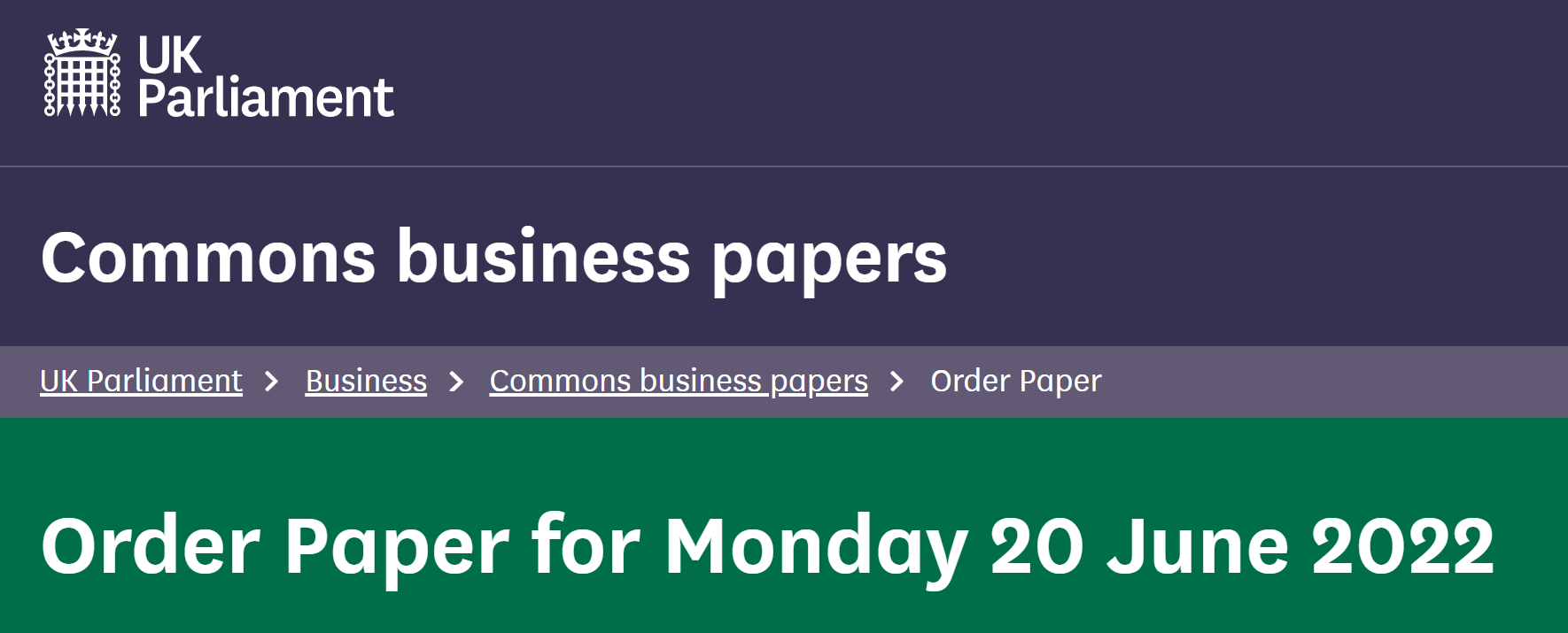The return of the Carbon Emissions (Buildings) Bill
First reading of the Carbon Emissions (Buildings) Bill - June 2022.
Jerome Mayhew MP reintroduced a private member’s bill to the UK Parliament today, calling for the reporting and limiting of embodied carbon in buildings.
This follows one month after the House of Commons Environmental Audit Committee published their report on reducing carbon in construction, which stated that “…the single most significant policy the Government could introduce is a mandatory requirement to undertake whole-life carbon assessments for buildings.”.
In March, Mayhew gave the opening speech at the parliamentary launch of Part Z, where he outlined the importance of regulation in tackling the scale of the built environment’s carbon emissions, and voiced his ambition to bring a bill to parliament to escalate the need for embodied carbon regulation. His bill is a refresh of the 10-minute rule bill previously proposed by Duncan Baker MP at the start of the year, which was dropped when he was promoted into a position within the Department for Levelling Up, Housing and Communities.
If passed into law, the bill would mandate the reporting of whole-life carbon within a building’s application to building control, introducing this requirement within the next few years, prior to then additionally mandating limits on upfront embodied carbon emissions (those released during construction) two years later.
This follows the format of Part Z, which proposes that all projects greater than 1000m2 or 10 dwellings must assess and report their whole-life carbon from 2023 (non-domestic) and 2025 (domestic), before then introducing upfront embodied carbon limits from 2027. The limits would be based on data collected in the preceding years, providing industry grounding to ensure they are achievable as well as ambitious, and would be ratcheted down in alignment with the UK’s decarbonisation trajectory.
The Part Z authors are proud to have worked with both Mayhew and Baker on their versions of the bill, providing technical advice as to how such legislation could be used to reduce carbon emissions in the construction of buildings.

